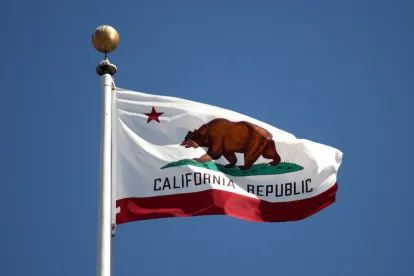Proposition 22 Exempts App-Based Drivers from AB 5
On November 4, 2020, gig-economy companies operating in California (particularly, ride-share companies such as Uber and Lyft) breathed a deep sigh of relief, as Proposition 22 - which exempts app-based driving services from having to re-classify their drivers from independent contractors to employees under Assembly Bill 5 (“AB 5”) - was overwhelmingly approved by California voters. But this was not without the drivers receiving certain employee-like protections and benefits they otherwise were not receiving.
Specifically, Proposition 22, (which did not do away with AB 5 as some people may think), provides app-based drivers with occupational accident insurance to cover injuries and illnesses incurred on the job. It also requires app-based transportation and delivery companies to provide healthcare subsidies to drivers who work at least 15 hours a week in the form of a stipend towards private health insurance (as opposed to health insurance through an employer healthcare option), and an even greater stipend if the worker drives more than 25 hours a week. Proposition 22 also promises “guaranteed minimum earnings” equal to 120% of California’s minimum wage. However, these minimums only apply to “engaged time” on the app, which covers roughly 30% of workers’ shifts when there is a passenger in the car. Finally, Proposition 22 requires that app-based transportation and delivery companies: (1) develop sexual harassment policies; (2) conduct criminal background checks; and (3) mandate safety training for their drivers.
AB 2257 Further Expands and Revises AB 5
In addition to Proposition 22, the state legislature recently enacted AB 2257, which was signed into law by Governor Newsom on September 4, 2020. AB 2257 allows district attorneys, in addition to the Attorney General and certain city attorneys, to seek injunctive relief against businesses suspected of misclassifying independent contractors, which could lead to increased enforcement actions. More fundamentally, however, AB 2257 expands certain existing exemptions and categorizes additional professions as exempt under AB 5. In other words, worker classification in these newly exempt industries will be determined under the prior Borello test as opposed to the Dynamex test.
For example, AB 2257 creates exemptions for various professions in the entertainment industry. Specifically, the bill exempts from AB 5 (1) professions related to creating, marketing, promoting, or distributing sound recordings or musical compositions, but not film or television; (2) musicians or musical groups performing single-engagement live events that are not (a) a symphony orchestra, a musical theater production, or occurring at a theme park or amusement park, (b) a headliner in a venue with over 1,500 attendees, or (c) occurring at a festival that sells over 18,000 tickets per day; and (3) individual performance artists (i.e. comedians, magicians, mimes, etc.) who present material that is their original work and creative in character, and who can meet certain other requirements related to the control over their work.
AB 2257 also enlarges AB 5’s “professional services” exemption, which applies to individuals in specified industries.[i] While this exemption previously applied to photographers, photojournalists, freelance writers, editors, and newspaper cartoonists – it has been expanded to include videographers, photo editors, translators, copy editors, and illustrators; however, workers performing these services in the film or television industries were not included. Critically, these workers are no longer limited to 35 content submissions per year to remain eligible for this exemption. In other words, workers in these industries will remain governed by Borello regardless of how often they submit content to an individual hiring entity (so long as they satisfy additional requirements, including that the work is performed under a written contract containing specific terms for payment). Additionally, other workers now included by AB 2257 under this “professional services” exemption are: those who contribute to the content of a journal, book, periodical, or any other educational, academic, or instructional work; specialized short-term instructors; registered professional foresters; and real estate appraisers/home inspectors.
AB 2257 further revises AB 5’s “referral agency” exemption, which applies to the contractual relationship between a business, including individuals operating as a sole proprietor, and a “referral agency” wherein the referral agency provides client connections. Critically, AB 2257 expands the kinds of referral agencies businesses may contract with while availing themselves of this exemption. Specifically, “referral agencies” now include those in consulting, youth sports coaching, caddying, and interpreting services. Further, AB 2257 requires the contracting business to certify to the referral agency that it possesses proper business licenses and tax registration, and must maintain such documentation for at least three years – obligations that had been imposed on the referral agency under AB 5.
Moreover, AB 2257 expands AB 5’s “business-to-business” exemption, which is not limited to specific industries and applies to contractual relationships between businesses when one (the “service provider”) is hired to perform services for the other (the “contracting business”). In particular, public agencies and quasi-public corporations are now included as “contracting businesses”. Further, while AB 5 required that service providers provide services directly to the contracting business, AB 2257 now allows them to provide services directly to the contracting business’s customers - so long as the service provider’s employees perform “under the name” of the service provider. Relatedly, AB 2257 also exempts the relationship between two individuals (acting as sole proprietors or business entities) wherein work is performed under contract at the location of a “single-engagement event.”
Lastly, AB 2257 adds unqualified exemptions from AB 5 to the following occupations: licensed landscape architects; licensed professionals who provide underwriting inspections and other services for the insurance industry; manufactured housing salespersons; people engaged by an international exchange visitor program; and competition judges with specialized skills.
Conclusion
In sum, California’s worker-classification landscape is complex and continues to evolve. While an entirely new framework was imposed in recent years with the enactment of AB 5 and decision in Dynamex, legal challenges, including those in the legislature (i.e. AB 2257) and at the ballot box (i.e. Proposition 22), continue to soften AB 5’s rigid confines. These challenges will have the likely effect of allowing the use of independent contractors in a growing number of industries to remain largely undisturbed. Further, while President-Elect Joe Biden has indicated his support for AB 5 and a desire to adopt and apply a similar framework nationally, only time will tell if such a nation-wide change will occur. Nonetheless, businesses must stay vigilant and remain extremely careful when classifying a given worker, as penalties for misclassification can be severe and, as mentioned above, enforcement actions for misclassification can now be brought by district attorneys.
[i] The “professional services”, “referral agency” and “business-to-business” exemptions discussed herein additionally require the party seeking to validate independent contractor status to demonstrate that the worker in question meets certain requirements related to independence, which must be closely analyzed with the specific facts surrounding a given relationship.





 />i
/>i

